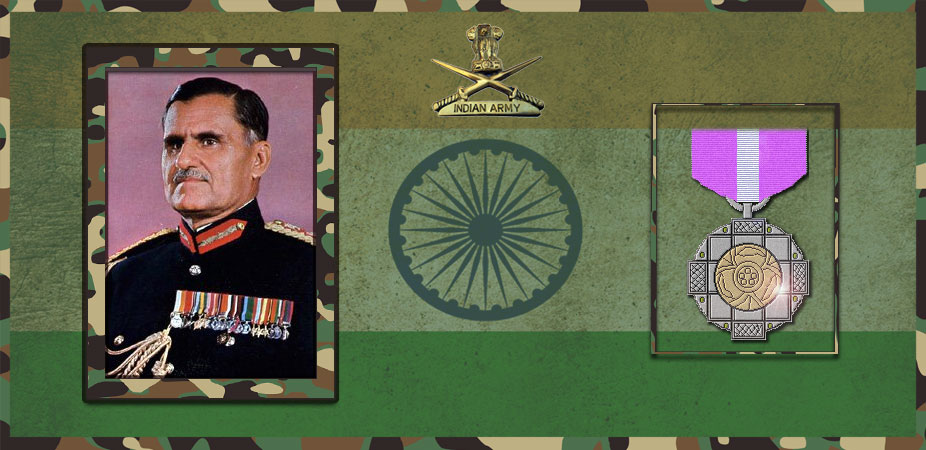Let's salute to our Indian Army together, We are proud to be Indian.
Let's salute to our Indian Army together, We are proud to be Indian.

General Tapishwar Narain Raina Padma Bhushan, MVC (1921 – 19 May 1980) was a former Chief of the Army Staff of the Indian Army. He held the office between 1975 and 1978. Later, he served as High Commissioner to Canada. He was a recipient of the third highest civilian honour of India, the Padma Bhushan.
He was educated in Ludhiana, where his father, B. N. Raina, had been posted as Head Postmaster.He was married to Marie Antoinette Raina, who was a French woman.
Raina served with the Kumaon Regiment and was a veteran of the Second World War, as well as the 1962 war and 1971 wars.
During the Second World War, while serving as a Second lieutenant, Raina was injured in a grenade accident which resulted in the loss of an eye. He had a glass eye in place for the rest of his career in the army.
He was the Brigade Commander at Chushul in Ladakh during November 1962. He was awarded the Maha Vir Chakra for his handling of the Battle of Chushul.
Later, Raina became the Brigadier General Staff (BGS) of the XXXIII Corps in West Bengal.
In 1971, Raina was a Lieutenant General, and was the General Officer Commanding of II Corps in the Khulna sector. Raina was awarded the Padma Bhushan for his contributions in the War.
He served as the Chief of Army Staff of the Indian Army from 1 June 1975 to 31 May 1978.
During his tenure as the COAS, the central government led by Indira Gandhi declared a state of national emergency in India. Before the imposition of the emergency, it is believed that the Prime Minister asked for the Army’s support in the venture, but General Raina bluntly told the Prime Minister that the army would not be used to ‘further her ends’ but obey only those orders of a ‘legally construed government’. This was considered a crucial moment that kept the Indian Army out of politics at a critical juncture.
Raina died on 19 May 1980 in Ottawa, while serving as India’s High Commissioner to Canada.